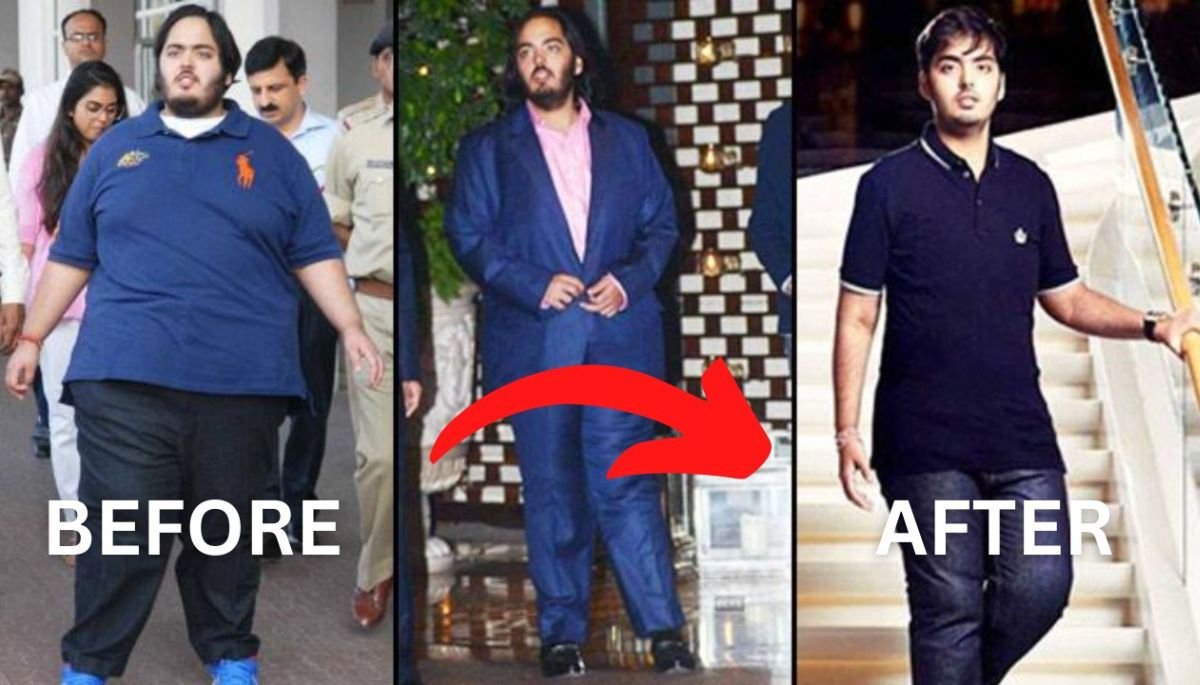Anant Ambani, the youngest son of Indian billionaire Mukesh Ambani, has recently been in the spotlight due to his health condition. The news about Anant Ambani disease has sparked curiosity and concern among the public. This article aims to provide a detailed overview of his health challenges, offering reliable information backed by credible sources.
As the scion of one of India's most prominent families, Anant Ambani's life has always been under public scrutiny. Recently, discussions about his health have gained significant attention. Understanding the nature of his condition is essential not only for those interested in celebrity health but also for anyone seeking insights into similar medical conditions.
This article dives deep into the topic of Anant Ambani disease, exploring its causes, symptoms, diagnosis, and treatment options. By the end of this guide, readers will have a comprehensive understanding of the health challenges faced by Anant Ambani and how they are being addressed.
Read also:Irvine Spectrum Movies Your Ultimate Guide To Entertainment
Table of Contents
- Biography of Anant Ambani
- Overview of Anant Ambani Disease
- Causes of the Condition
- Symptoms and Early Signs
- Diagnosis Process
- Treatment Options
- Managing the Condition
- Impact on Daily Life
- Support Systems and Resources
- Future Outlook and Research
Biography of Anant Ambani
Data and Facts About Anant Ambani
Before delving into the specifics of Anant Ambani disease, it is essential to understand who Anant Ambani is. Born on June 14, 2000, Anant is the youngest child of Mukesh Ambani and Nita Ambani. He comes from one of the wealthiest families in India, with a net worth exceeding $100 billion as of 2023.
Below is a summary of Anant Ambani's personal information:
| Full Name | Anant Mukesh Ambani |
|---|---|
| Date of Birth | June 14, 2000 |
| Parents | Mukesh Ambani and Nita Ambani |
| Siblings | Isha Ambani and Akash Ambani |
| Education | Studied at NPS International School, Singapore |
Overview of Anant Ambani Disease
Anant Ambani disease refers to the health condition that has been reported in the media recently. While specific details are often shrouded in privacy, the condition is believed to involve a chronic illness or autoimmune disorder. Understanding the nature of his disease requires an examination of its underlying causes and symptoms.
This section provides a general overview of the condition, emphasizing the importance of accurate diagnosis and effective treatment. According to medical experts, chronic illnesses like those potentially affecting Anant Ambani require personalized care plans tailored to individual needs.
Causes of the Condition
Understanding the Root of Anant Ambani Disease
The exact cause of Anant Ambani disease is not publicly disclosed, but medical research suggests that chronic illnesses often stem from a combination of genetic, environmental, and lifestyle factors. For instance:
- Genetic Predisposition: Some conditions are hereditary, meaning they can be passed down through family lines.
- Environmental Triggers: Exposure to certain pollutants or toxins may exacerbate or trigger underlying health issues.
- Lifestyle Factors: Diet, exercise, and stress management play critical roles in maintaining overall health and preventing chronic conditions.
Medical professionals emphasize the importance of early detection and intervention to mitigate the impact of such diseases.
Read also:Henry Ford Pain Clinic Your Premier Destination For Comprehensive Pain Management
Symptoms and Early Signs
Recognizing the symptoms of Anant Ambani disease is crucial for timely diagnosis and treatment. Common signs of chronic illnesses include persistent fatigue, joint pain, skin rashes, and gastrointestinal issues. While these symptoms may vary depending on the specific condition, they often signal the need for further medical evaluation.
Early detection is vital for managing chronic illnesses effectively. Patients experiencing unusual symptoms are encouraged to consult healthcare providers promptly for accurate diagnosis and appropriate treatment options.
Diagnosis Process
Steps to Identifying Anant Ambani Disease
Diagnosing a chronic illness involves a series of tests and evaluations conducted by qualified medical professionals. The process typically includes:
- Physical Examination: A thorough assessment of the patient's overall health and symptoms.
- Lab Tests: Blood, urine, and imaging tests to identify underlying causes.
- Specialist Consultations: Referrals to specialists such as rheumatologists or immunologists for further evaluation.
Accurate diagnosis forms the foundation for effective treatment and management of chronic conditions.
Treatment Options
Managing Anant Ambani disease requires a multidisciplinary approach involving medication, lifestyle changes, and supportive therapies. Treatment plans are tailored to address the specific needs of each patient, focusing on symptom relief and long-term management.
Common treatment options include:
- Medications: Anti-inflammatory drugs, immunosuppressants, and pain relievers.
- Therapies: Physical therapy, occupational therapy, and counseling.
- Lifestyle Modifications: Balanced diet, regular exercise, and stress management techniques.
Managing the Condition
Strategies for Living with Anant Ambani Disease
Living with a chronic illness requires proactive management and self-care. Patients are encouraged to work closely with their healthcare providers to develop personalized care plans. Key strategies include:
- Regular follow-up appointments with doctors.
- Adherence to prescribed treatment regimens.
- Engagement in supportive communities and networks.
By adopting a holistic approach to health management, individuals can improve their quality of life despite chronic conditions.
Impact on Daily Life
Chronic illnesses like Anant Ambani disease can significantly impact daily life, affecting physical, emotional, and social well-being. Patients often face challenges such as fatigue, pain, and limitations in daily activities. However, with proper management and support, many individuals can lead fulfilling lives despite their health challenges.
Family support plays a crucial role in helping patients cope with the emotional and psychological aspects of chronic illnesses. Open communication and empathy are essential for fostering a supportive environment.
Support Systems and Resources
Access to reliable support systems and resources is vital for individuals managing chronic illnesses. Patients and their families can benefit from:
- Support groups and online communities.
- Educational materials and workshops.
- Professional counseling and therapy services.
Healthcare providers and advocacy organizations offer valuable resources to help patients navigate their journey with chronic illnesses.
Future Outlook and Research
Advancements in Chronic Illness Management
Ongoing research and advancements in medical science offer hope for improved treatment options and better outcomes for patients with chronic illnesses. Innovations in biotechnology, personalized medicine, and digital health solutions are paving the way for more effective management strategies.
As research progresses, it is essential for patients and healthcare providers to stay informed about the latest developments and incorporate them into treatment plans when appropriate.
Conclusion
In conclusion, Anant Ambani disease highlights the importance of understanding and managing chronic illnesses effectively. By exploring its causes, symptoms, diagnosis, and treatment options, this article aims to provide valuable insights into the health challenges faced by Anant Ambani and others with similar conditions.
We encourage readers to share their thoughts and experiences in the comments section below. Additionally, feel free to explore other articles on our site for more informative content. Together, let's foster a supportive community dedicated to promoting health and well-being for all.



